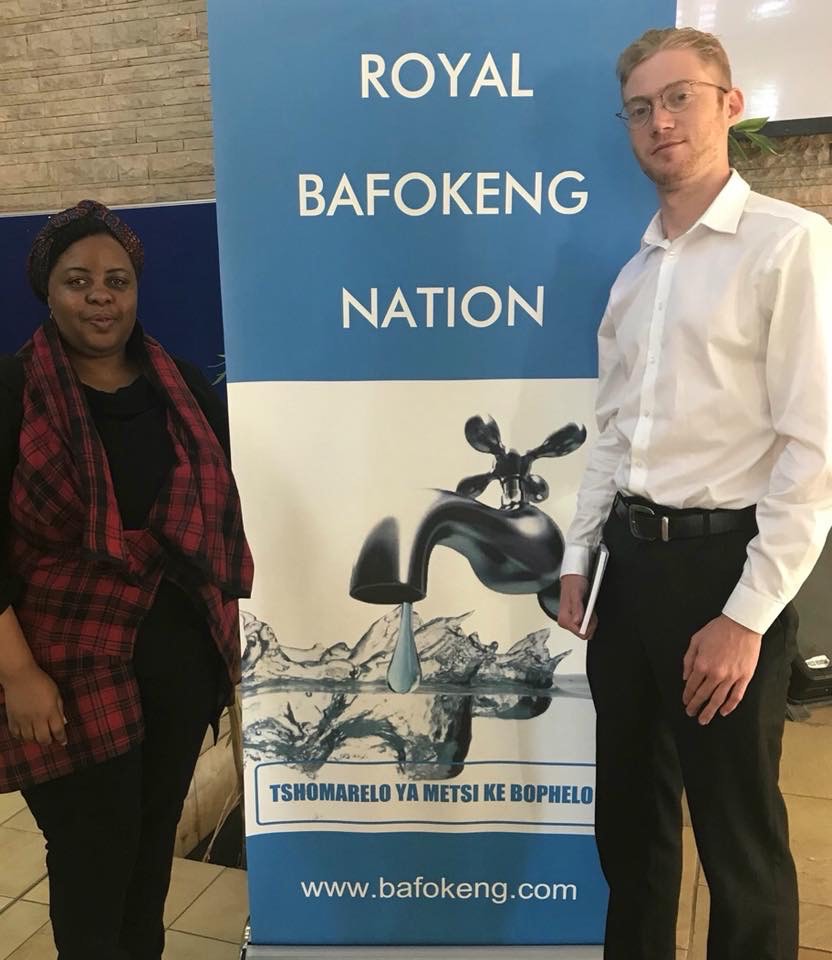During the summer of 2018, International Relations Professor Angela Gapa, and former IR Student William Walker (’18) conducted field and archival research in Johannesburg, South Africa on the Royal Bafokeng Nation – deemed Africa’ richest ethnic group - and their management of natural resources. In a peer-reviewed publication in The Extractive Industries and Society, Gapa and Walker argue that the Bafokeng’s culture, including political mobilization and willingness to litigate, has made this nation a clear counterexample to the idea of the resource curse, and the negative implications of the curse for indigenous communities.

Professor Angela Gapa and Alumnus William Walker (’18)
“This research was of particular significance to me as a scholar from Southern Africa interested in the nexus between natural resources, development and security in Africa. Most western literature and media on African development has been negative and pessimistic so to conduct research on a true African success story like the Royal Bafokeng is intellectually refreshing. I want to inspire more Chico State students to take advantage of global immersive learning and to expand their worldview beyond the classroom and what they see in news media.” - Angela Gapa, PhD
“The research allowed me to apply the theories and concepts that we covered in the Politics of Africa and Comparative Political Institutions that I took with Professor Gapa, and turned the learning process into a tangible life experience. I found such a connection with South Africa that a part of me will stay there forever. I’m proud of the publication of the project that Professor Gapa and I worked on”. – William Walker, Class of 2018
See the abstract of their paper below.
“State, Corporate & Traditional Community Relations and the Politics of Leverage in the Royal Bafokeng Nation
Angela Gapa (PhD) and William Walker, California State University, Chico. Published in The Extractive Industries and Society
The strategic management of resources has recently garnered widespread analytic attention with the prevailing consensus being the “resource curse,” and its negative effect on social, economic and political development worldwide. The curse is significantly worse for traditional and indigenous communities where tribal land rests atop valuable subterranean resources without much leverage to negotiate for their use or ownership. Some of the poorest indigenous people live in the most resource-rich regions of the world, a condition that is true in both the developed and developing worlds alike. The Royal Bafokeng Nation of South Africa, however, provides a strong counterpoint. Deemed Africa’s richest ethnic group, the nation was able to leverage its political clout to establish a community investment company which administers a lucrative financial portfolio that consists of assets in a diverse range of economic sectors all stemming from platinum resources on Bafokeng tribal land. The case of the Royal Bafokeng Nation provides a stark anomaly to the literature on indigenous access to subterranean resources and begs the question “how do communities navigate leverage with their respective state governments in order to benefit from their subterranean natural resources on their indigenous land?” To examine this question, this paper borrows insights from examples in former Anglophone colonies of settlement for structural context and argues that the Bafokeng’s political culture evidenced by its political mobilization, inclinations to litigate and its shrewd politicking provided levers of success in negotiating for communal access to platinum resources.
